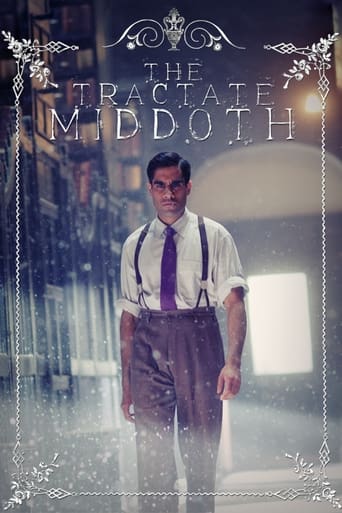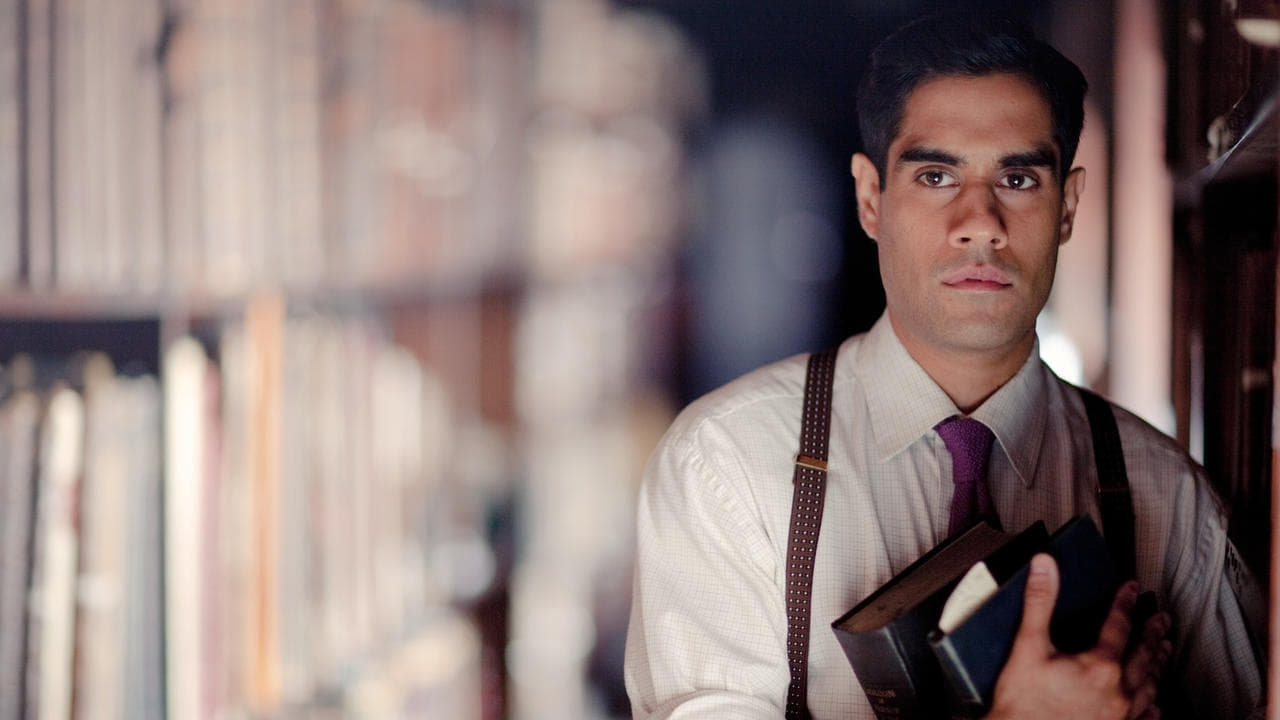Leofwine_draca
THE TRACTATE MIDDOTH deserves commendation purely because it's a traditional ghost story and an adaptation of an M. R. James story to boot. Unlike the previous version of WHISTLE AND I'LL COME TO YOU, which starred John Hurt and unwisely tried to update the story to the modern day (very unsuccessfully, I might add), THE TRACTATE MIDDOTH is extremely traditional and true to the original story.It's a labour of love for writer/director Mark Gatiss, who turns out to be a better writer than he is director. It's not that his direction is poor, it's just rather straightforward and perhaps slightly too subtle, even when adapting an author known for his subtlety. The story adaptation also has a few flaws, including some rather large coincidences, but then it does have to all tie up neatly in a rather short running time.The period look and feel is spot on, and the plotting is quite a bit of fun. Most importantly, it feels true to the classic adaptations of the '70s, even if it is a lesser being. The horror does feel very gentle and the two 'scare' sequences aren't entirely successful, but I'm just happy that the BBC are going in the right direction for once. Let's hope Gatiss gets to do another one next year!
James Hitchcock
Although only one feature film ("Night of the Demon") has been based upon the ghost stories of M R James, a number of them have been adapted as short plays for British television, a format to which they are possibly more suited. During my childhood in the 1970s, I remember that the BBC regularly used to dramatise one every year under the title "A Ghost Story for Christmas", and this tradition has been revived in recent years. "The Tractate Middoth" is the latest offering in this series. The story opens in an unnamed university library. Mr Garrett, a young librarian, is asked by a man named John Eldred for an obscure Hebrew religious text. (In the original story Garrett has the Christian name William, but that is not used here). In some ways, this is as much a detective story as a ghost story. The detective element derives from a will made by an elderly and malicious eccentric, Dr Rant, who has ingeniously concealed it within the book in question. Eldred turns out to be the nephew of the testator and the inheritor of his estate. The ghost element derives from the fact that Rant, although long dead, still seems to take a protective interest in the old book. A frequent theme of James's work was the irruption into the rational, ordered world of his gentleman-scholars of dark, irrational forces, and this contrast between the seemingly rational and the uncanny is what gives them a lot of their force. "The Tractate Middoth" was first published in 1911, but was probably written earlier, and James probably envisaged the action taking place around 1895. Mark Gatiss, however, the writer and director of this version, has updated it to the 1950s, and I think that the change works quite well. The fifties, often seen as a brief interval of peace and stability between the turmoil of the war years and the social changes of the 1960s, were, like the late Victorian and Edwardian period, an era when it seemed, at least temporarily, that God was in his heaven and all was right with the world. Gatiss sticks quite closely to the plot of James's story. The main difference is that in the original the ghost only appears once, near the beginning. We are doubtless meant to infer that Eldred's death is due to the agency of Rant's ghost, as malevolent in death as he was in life, but James never makes this explicit. Here, Gatiss takes the opportunity to have the ghost reappear at this point, probably to make the tale more frightening. This film is not really in the class of the best James adaptations, such as Jonathan Miller's famous black-and-white version of "Whistle and I'll Come to You" (not part of the "A Ghost Story for Christmas" series), although the reason for this may be that "The Tractate Middoth" is perhaps not James's greatest story. The main problem is that it relies too heavily on an improbable coincidence; after his meeting with Eldred and his encounter with the ghost, Garrett goes to the seaside to recover- where the landlady of his boarding-house turns out to be none other than Eldred's cousin and the beneficiary of the missing will. Gatiss, however, handles his material well, telling quite a complicated tale in just over half an hour, and the ghost is suitably scary. This was enjoyable viewing for a Christmas evening. 6/10
Prismark10
From actor, writer and director Mark Gatiss is an adaptation of a short ghost story from M R James whose previous ghost stories used to be a staple at BBC adaptations in the 1970s around Christmas.Gatiss better known as a performer with The League of Gentlemen and as writer on Doctor Who and Sherlock is an aficionado on horror and Victorian literature.This is short simple, spooky tale. It has very little by way of tricks or fancy visual gimmicks. You have familiar British stalwarts from Roy Barraclough, Una Stubbs to John Castle with Sacha Dawan playing an earnest Librarian in 1950s set Oxbridge whose disposition gets rather nervous after a spectral encounter when looking for a book in Hebrew.Some might find the adaptation flat or uninspiring but it misses the point. Its a throwback to the old days when you had a plain ghost story told in a straightforward manner and still provides a few chills.
l_rawjalaurence
During the Seventies the BBC made a habit of broadcasting A GHOST STORY FOR Christmas, mostly written by M. R. James and directed by Lawrence Gordon Clark. This continued a tradition established by James himself, who initiated precisely the same ritual during his lifetime as he read out a newly-created story each Christmas to his intimate circle of friends. Directed and adapted by Mark Gatiss, THE TRACTATE MIDDOTH revives that tradition; it concerns Garrett, a young librarian (Sacha Dhawan) who works at an Oxbridge college and is asked by elderly user John Eldred (John Castle) to locate a book, "The Tractate Middoth." This book appears to have been taken by a mysterious borrower who turns out to be a rotting ghost. Garrett encounters this specter and is thereby unwittingly drawn into a dark family story of resentment and revenge. Gatiss' adaptation updates the material to the Fifties, which enables him to create a thriller in the style of the MAN IN BLACK series (which Gatiss revived on radio) or the Edgar Lustgarten mysteries for Merton Park Studios. The adaptation establishes a sense of security through the presence of familiar elements - notably the Oxbridge locations, and the presence among the cast of stalwart character actors such as Roy Barraclough, David Ryall and Una Stubbs. As the action progresses, this sense of familiarity is gradually dismantled, culminating in a violent denouement. We are left in no doubt what will happen, but Gatiss stages it in an unexpected manner in the middle of a rural clearing on what looks like a fine late summer's day. The adaptation contains some notable cameos - for example Barraclough as a librarian insisting on absolute silence in his premises (even though there doesn't seem to be anyone there apart from Garrett and his friend George Earle (Nicholas Burns); and Castle's John Eldred, whose increasing anxiety is suggested by his breathless delivery.


 AD
AD


